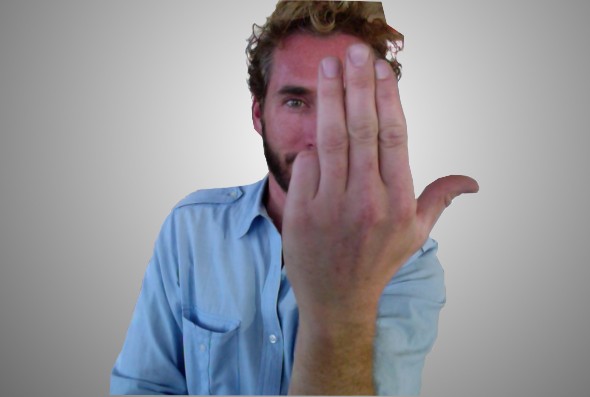Hollywood has a vernacular all its own and it’s best to learn the lingo so that you can become an eloquent practitioner. It’s what identifies you as a native to the other members of our tribe, as someone who’s in the know. Among the Town’s most popular pieces of parlance is “I don’t disagree.” But is it an affirmation worth a damn or is it just another equivocation on the road to development hell?
Rather than diminish the expression, understand that “I don’t disagree” is the epitome of endorsement, the height of harmony, the apex of agreement — in other words, in Hollywood, it’s as good as it gets.
In other cultures, contexts and businesses when one makes a cogent point, another person’s accord might be expressed with a head nod and the assent “I agree with you,” or simply, “I agree.” But in Hollywood, where everyone is perennially looking for an “out” — a way to avoid commitment, a way not to be pinned down — “I don’t disagree” is music to the ears.
“I don’t disagree” plants our flag in that narrow slice of sand that exists somewhere between agreeing and disagreeing with someone. It’s a half-endorsement. A non-contradictory stance. A no-quarrel policy. Like gender-neutrality, the blindfold of justice, or Switzerland.
But what’s really being conveyed by this double-negative euphemism?
In a business driven by passion, we’re leading the other person to think there’s something to build on. Like a promising first date, “I don’t disagree” could one day evolve into a real accord, a genuine romance or a committed relationship. But for the time being, we’re just flirting with consent, keeping all of our options open because passion, after all, can be fleeting.
“I don’t disagree” leaves the door open without creating conflict. It says: “I’m agreeable-adjacent, but your opinion is not quite tantamount to my own. Not that I have an opinion, otherwise I’d express it so that you don’t disagree with it either.” In a town where we can’t take no for answer, “I don’t completely reject what you’re saying” has become validation enough. It’s as cogent a concord as you’re ever going to get or you ever need to give.
For an innocuous little phrase, “I don’t disagree” covers a lot bases. Whenever it’s uttered, a tacit pact occurs — one that keeps both parties off the hook: You haven’t rocked the boat with an opinion anyone disagreed with and They only half-agreed to whatever it is you ventured. You’re both in a comfort zone of plausible deniability. Reciprocity, you see, is part of our Hollywood Code. A Code that is all about conflict avoidance, which is why we’re prone to this tentative truce, to this détente of dialogue. “I don’t disagree” warms our cockles like a comfortable cashmere sweater.
And therein lies the truth about what this handy little ditty really means…
“I don’t disagree” has become an inside joke with Lee Cohen, an agent with whom I’ve worked for 14 years. When he uses it on me, I reason that if that’s the strongest covenant he’ll offer, my only appropriate response is “Fuck you, too.” It’s a good-natured joke, of course, and our mutual laughter signifies the truth of the matter. But there is truth there: if the best you’re prepared to offer someone is that you don’t disagree, isn’t that the same as flipping them the bird?
I hereby submit that the real meaning of “I don’t disagree” is “Fuck you.” If you’re in on the joke then when you tell another Hollywood denizen “I don’t disagree,” they’ll know that this is what you really mean.
So if you’re going to say it, say it with a smile. Utter it with feeling. Express it with gusto. Greet each other with it as you pass in the hallway. Take your game to the next level. Suss out who’s really in the know.
“I don’t disagree.” If you can’t say it, you can’t do it.
I dare you to disagree.








1 Comment
I must say, I wouldn’t disagree with that!